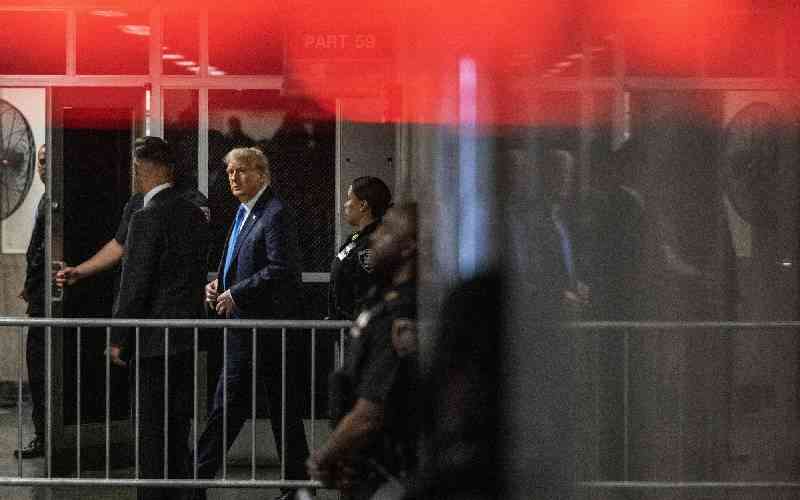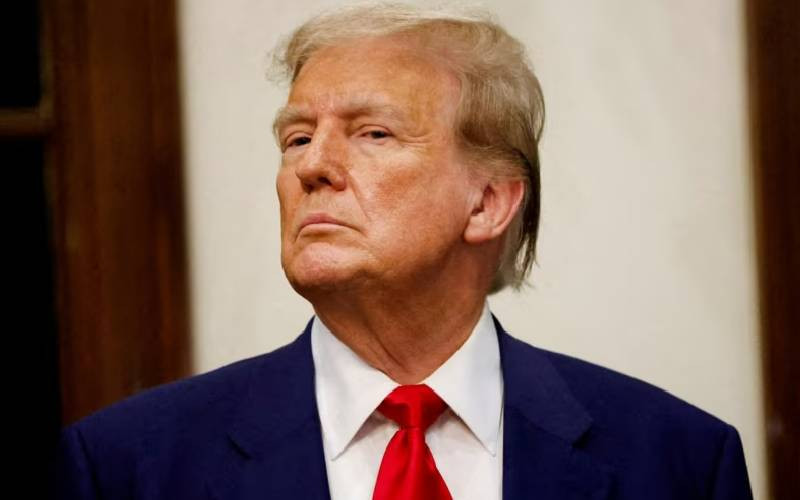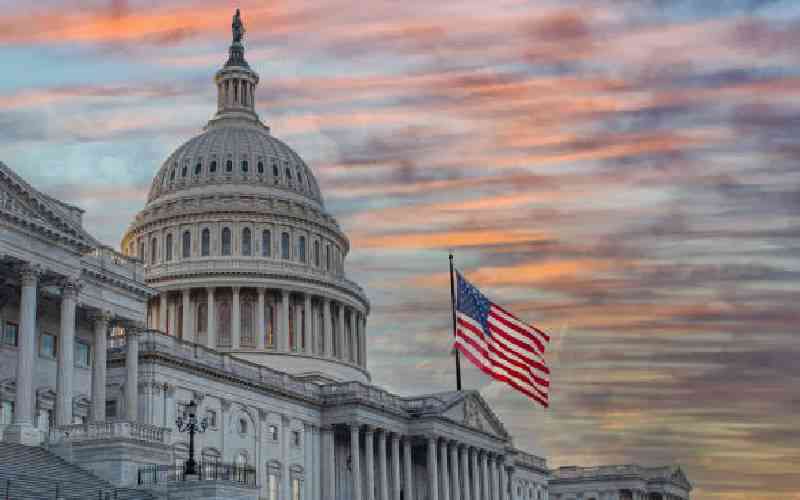Growing up, Donald Trump admired his rich, self-made real estate dad, Fred Trump, the son of a German immigrant called Drumpf. But Donald Drumpf was too ‘soft’ to operate in the rough-and-tumble Queens’ (neighbour)hood of New York where his father Fred had made a fortune building apartments for the broker denizens of New York City (also popularly called The Big Apple).
“When we went with the collectors to knock on doors for rent, we learned to knock and then stand on the side of the door,” Donald has been quoted saying. “Because, sometimes, an enraged tenant might fire a bullet through the wooden door (instead of emerging to pay his rent).”
Donald couldn’t wait to escape; and straight after completing his degree in Wharton School of Business, where he was just average, he went off to glamorous Manhattan in New York, rented a large apartment there (paid for by his daddy) and joined Le Club, whose membership included some of the “most successful men and most beautiful women in the world”, as he put it.
“The sort of place where you were likely to see a wealthy 75-year-old guy walk in with three blondes from Sweden.”
GAY LAWYER
Donald clearly liked this scene, and it is at Le Club where he met his mentor, a gay lawyer called Roy Cohn, who helped him and his father Fred fight a case in court when the State of New York accused The Trump Organization of discriminating against blacks by not renting them apartments in their Queens’ and Swifton facilities. The Trumps lost, and were forced to agree to do equal-opportunity advertising of vacancies for a period of time in local New York newspapers.
This is the Donald who is now asking African-Americans “what have you got to lose?” by electing him.
Donald’s first major deal in the city of New York was buying a rundown hotel called The Commodore off the Penn Central Station for $10 million, six million of which would immediately go to pay off back land taxes owed to the city municipality. Donald was then required to sell The Commodore to the city municipality for a dollar, which would then lease it back to him for 99 years at $250,000 a year rising to a maximum of $2.7 million by the 40th year (2015). Plus a small percentage of profits.
It was a good deal for Donald – like buying a major Kenyan hotel for, say, Sh100 million, paying the Nairobi City County Government Sh60 million of that (‘one bag at a time’) for property tax, then selling the hotel back to the county for a shilling only for them to lease it back to you for just Sh2.5 million a year that increases just by Sh5,000 a month until 2056. But the hotel is yours till 2115.
Equitable Bank provided Donald with $3.5 million and Bowery Bank with $4.5 million. His father gave him the balance of $1 million.
Daddy’s boy Donald then made, arguably, the only great deal he has ever made in his life, on his own.
In the early 1980s, Donald bought the Bonwit building for $25 million, demolished it and built the 263-apartment block named Trump Towers for a further $75 million borrowed from Chase Bank. He rented, or sold off (for just over $1 million per unit), several apartments in the building, while renting out the first six floors of the 68-storey building in Manhattan to various large businesses.
He kept a triplex penthouse (where he still lives with wife Melania and small son Barron, although they have a seaside house called Mar-a-Lago in Florida) which ‘Country & House’ described as “ostentatious and gaudy”, with its brown marble and gold interiors giving it the feel of a “hotel lobby” rather than a home.
For a long time, his friend, Saudi billionaire and arms dealer Adnan Khashoggi, was his neighbour there.
Then, beginning in the late 1980s after he’d turned 40, and with his father gone, Donald became very greedy, aspiring to become a bona fide billionaire. He over-extended his budding real estate empire with massive borrowing to build the infrastructure of new ventures, which sank him into the quicksand of long-term debt (does this narrative sound familiar, anyone?).
Stay informed. Subscribe to our newsletter
One day, while driving to the Trump Parc, a report on the radio said that the two casino hotels Hilton owned in Las Vegas contributed to 40 per cent of their profits, yet Hilton had over 150 hotels the world over (including the one in Nairobi’s CBD). Just like that, Donald leaped into the casino business, like a duck taking to water.
“After all,” he told himself, “the House never loses.”
Between 1986 and 1991, Donald had entered a deal with Holiday Inn to build a huge casino in Atlantic City before buying them out for $220 million using debt bonds from Bear Stearns. Before the ink was dry on that deal, or should we say the paint on the walls of this Trump Plaza, there he was buying out a big Hilton Casino hotel that Barron Hilton had built for $300 million, but upon failing to get an operating licence, sold it to Donald for $320 million.
unflattering book
He called this new casino hotel The Trump Castle, and got his then wife Ivana to run it, in direct competition with The Trump Plaza run by a professional called Steve Hyde (who would turn out to be his Mr Hyde and write an unflattering book about Donald called ‘Trumped,’ the first of many negatives).
Trump Castle would also become a castle in the air, as the two Trump brands in Atlantic City cannibalised each other, even as Donald borrowed more money in debt bonds ($400 million) to build the Trump Taj Mahal in Las Vegas (it went bankrupt this year).
Back in Atlantic City, his casinos were being mauled by the likes of Bally, Caesar’s Palace, the Tropicana and the Golden Nugget, and Donald soon joined the likes of Penthouse pornographer Bob Guccione and Playboy’s Hugh Hefner as failed casino operators and entrepreneurs.
“How does anyone lose a billion dollars in one year?” President Obama recently marvelled while on the campaign trail for Hillary Clinton, in reference to Donald Trump.
Donald would survive these twin bankruptcies in Atlantic City, thanks to legal dodges and complex negotiations in the US Chapter Eleven Bankruptcy Law courts (his trusting bond holders would be wiped out).
But that would not be the end of his losing streak in businesses built on debt while boasting that he was a “winner”.
Television City, his half-a-billion-dollar Westside yards would never come into existence after NBC (whose MSNBC is one of his worst media critics) moved from New York to New Jersey, a move he blamed on his political foe and then Mayor of New York, Ed Koch, who loathed him.
Then came Trump University, which conned students, then failed, pardon the pun.
Donald couldn’t even make decent vodka, something any distillery owned by his Russian friends can do, and Trump Vodka went down the drain.
One of his most hare-brained schemes was to create the United States Football League (USFL) to rival the National Football League (NFL) that fell flat on its face after the TV companies refused to play ball.
That is like trying to create a league parallel to the EPL!
CELEBRITY APPRENTICE
Donald did succeed in making himself a major one-man entertainment brand in the last decade through his show, ‘Celebrity Apprentice.’ It is that brand that he has carried into the international political arena.
If he falls today to the sword of his experienced Democratic competitor, Hillary Rodham Clinton, at least he will be used to great failures in his career, and can blame it on his bankruptcy of ideas for America, save for his “we’ll build a wall, Mexico will pay for it” refrain.
— [email protected]
 The Standard Group Plc is a
multi-media organization with investments in media platforms spanning newspaper
print operations, television, radio broadcasting, digital and online services. The
Standard Group is recognized as a leading multi-media house in Kenya with a key
influence in matters of national and international interest.
The Standard Group Plc is a
multi-media organization with investments in media platforms spanning newspaper
print operations, television, radio broadcasting, digital and online services. The
Standard Group is recognized as a leading multi-media house in Kenya with a key
influence in matters of national and international interest.
 The Standard Group Plc is a
multi-media organization with investments in media platforms spanning newspaper
print operations, television, radio broadcasting, digital and online services. The
Standard Group is recognized as a leading multi-media house in Kenya with a key
influence in matters of national and international interest.
The Standard Group Plc is a
multi-media organization with investments in media platforms spanning newspaper
print operations, television, radio broadcasting, digital and online services. The
Standard Group is recognized as a leading multi-media house in Kenya with a key
influence in matters of national and international interest.









